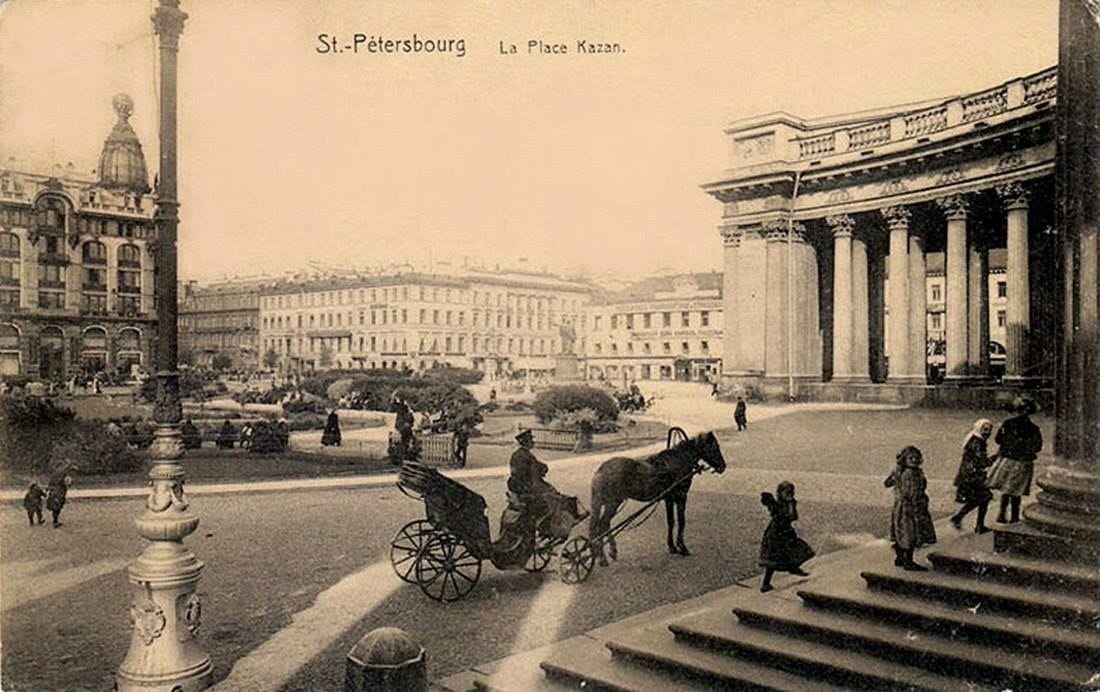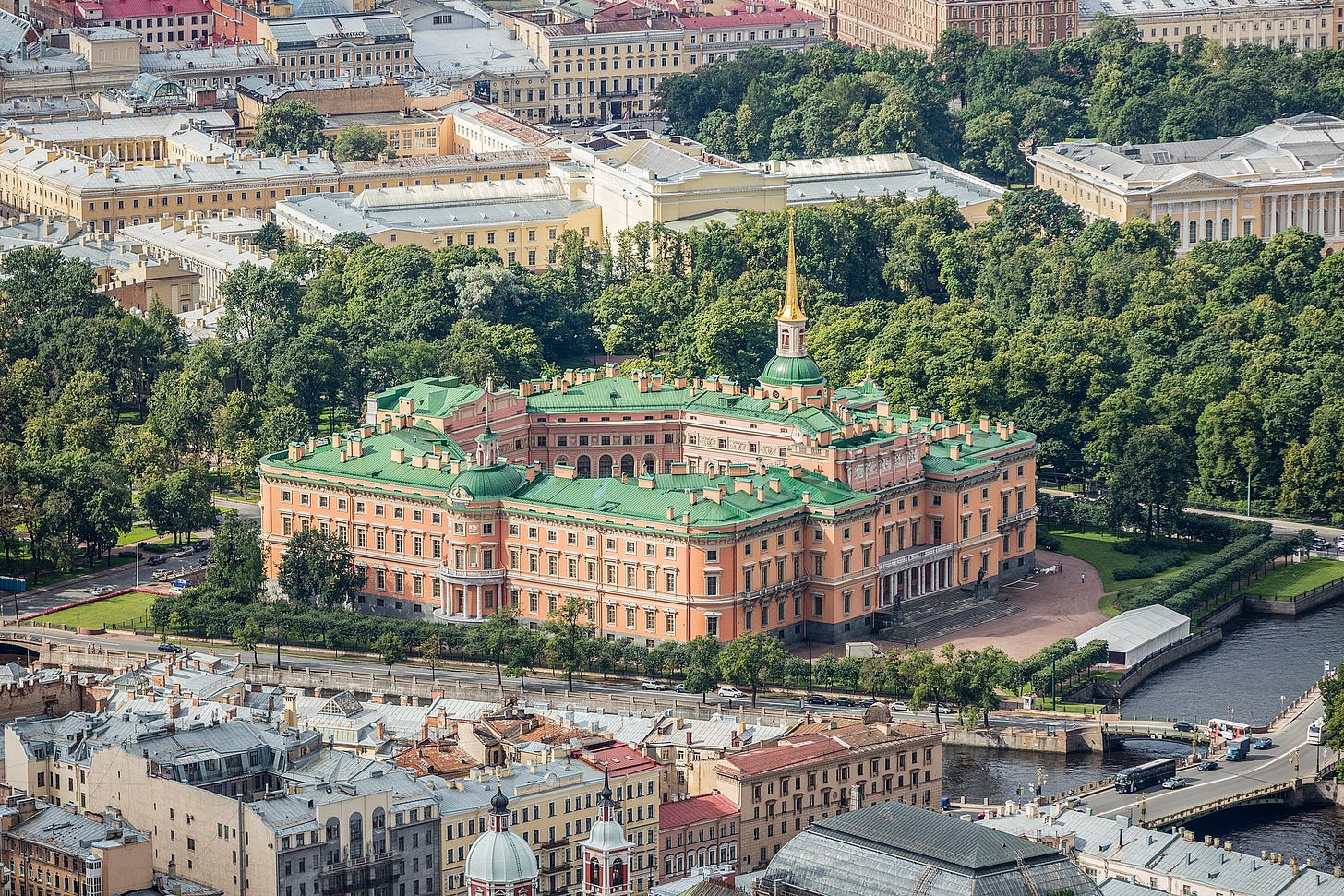21 January 1880. Monday
In the morning, I was to go to the Church of Our Lady of the Sign to collect the donated items, but received a note from Archpriest Vasily Ivanovich Barsov stating that today the churchwarden and clergy would be unable to receive me. I spent the entire day in idleness, confined to my home, as a complete thaw had set in, and it was difficult to go out wearing Ivan Ivanovich’s fur coat; his camlet outer garment was not at hand.
I hired the dismissed manservant Andrey to serve me for the time being and, in the evening, sent him to Vasilyevsky Island to retrieve the camlet cassock and hat; Ivan Ivanovich also sent his drab overcoat, strictly instructing me to avoid going out lightly clad at this time. In the evening, I visited Fyodor Nikolaevich.
The journey by sleigh over the cobblestones was arduous; we barely reached the Mikhailovsky Castle, the cabman having to walk alongside, urging the horse onward.
Fyodor Nikolaevich congratulated me on receiving the order; Ivan Vasilyevich Rozhdestvensky had told him that the Emperor had scarcely agreed to confer it: “Why not of the fourth degree?” Only after it was explained—saying that soon I would become a bishop—did His Majesty sign the decree. Fyodor Nikolaevich admonished me to serve another five decades—an excessive demand indeed!

Upon our return, he led me to the metochion of the Cheremenetsky Monastery on Mokhovaya Street, where vestments were promised as a donation. The eighty-year-old Abbot Nikodim graciously promised to donate them and at once pointed out two icons which he would also give. He is seeking release from the abbacy due to advanced age, claiming that his memory has weakened; nonetheless, he is a very kind elder with bright, intelligent eyes.

22 January 1880. Tuesday
In the morning, I wrote a letter to Shchurupov, agreeing to pay seven hundred and fifty rubles for the plan. Truly, what a man I have encountered! Only thanks to Fyodor Nikolaevich’s counsel yesterday, and under the influence of a scene I later read from the Odyssey, where Odysseus restrained his anger upon seeing the dissolute maidservants consorting with suitors, was I able to master myself and compose a courteous note after the architect’s rudeness.
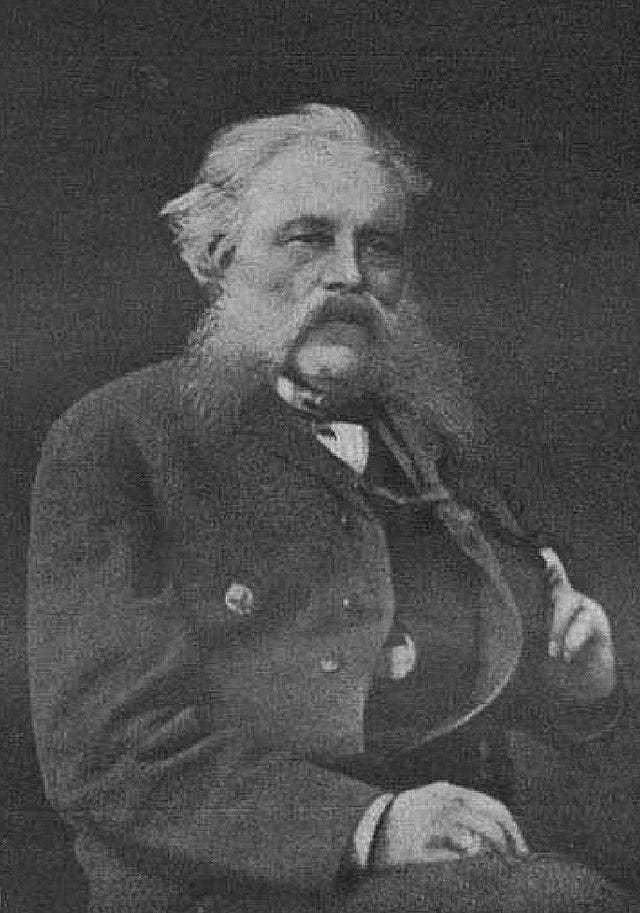
At ten o'clock in the evening.
The letter, together with the attached drawings of the church, was not sent immediately, for Andrey had gone out somewhere.
Suddenly, Shchurupov himself appeared—mild, amiable, and agitated.
"I request six hundred and fifty rubles; I do not wish to be ranked with some mere apprentice," he said.
"I agree," I replied, "but why were you so unreasonably angry last time? I had just as much right to wish for the work to be done at a lower cost as you had to value your labor more highly" (thus applying yesterday’s advice from Father Fyodor).
Shchurupov poured forth assurances that he had not truly been angry, that it was merely his way of speaking, and offered to draw up a formal agreement—the very thing I had been endeavoring to obtain from him. I provided paper and seated him at the writing desk, having first removed the copy of my letter to him. He produced an illiterate contract, but it clearly stipulated that he was to produce all details and drawings for the iconostases. I gave him one hundred and fifty rubles as earnest money; the signed contract remained with me, and I copied it and sent a counterpart to him, which has already been accomplished. Thus, the one hundred rubles that hung by a thread were saved. It seems Shchurupov fears the Metropolitan—that is, he fears losing future opportunities to design plans for the clergy.

— Andrey wished to return home to rest and recover his health; indeed, he appeared thoroughly worn out from arduous service to many masters. I dismissed him.
— At half past midnight, Father Joseph, the censor, arrived so that we might together visit some charitable institutions to which he is connected, either as a member or a founding participant.
Upon departing, we encountered Baron Roman Romanovich Rosen, who had recently returned on leave from Japan. It was exceedingly pleasant to meet again an acquaintance from Japan. Upon returning to my room, we merrily chatted for half an hour. He has already presented himself to His Majesty; he says he grows weary of the balls, lives at the Hotel de France on Bolshaya Morskaya, and rides in an excellent carriage. It seems he is not particularly eager to return to Japan.
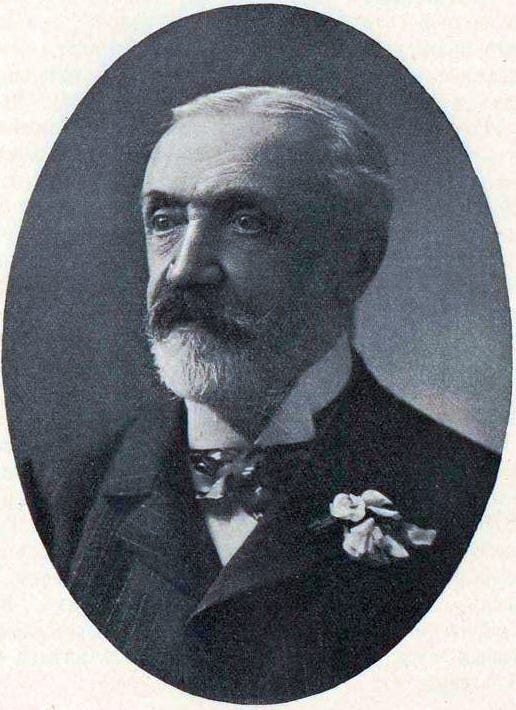
— While we were still conversing, a messenger arrived from Grand Duchess Ekaterina Mikhailovna, inviting me to dinner at her residence that evening at a quarter past six.
With Father Joseph, we first visited the Shelter of the Holy Martyr Methodius of Patara on the Sands. The shelter began some ten years ago, almost imperceptibly: a kind-hearted official named Methodius began to take in homeless girls who had previously merely served him. He clothed and taught them. As more girls gathered, Methodius, increasingly devoted to his good work, donated his entire fortune to purchase land, construct a stone house with a Church, and establish a garden. Once it was all founded, he presented the shelter to Grand Duchess Alexandra Petrovna, who now acts as its principal patroness.
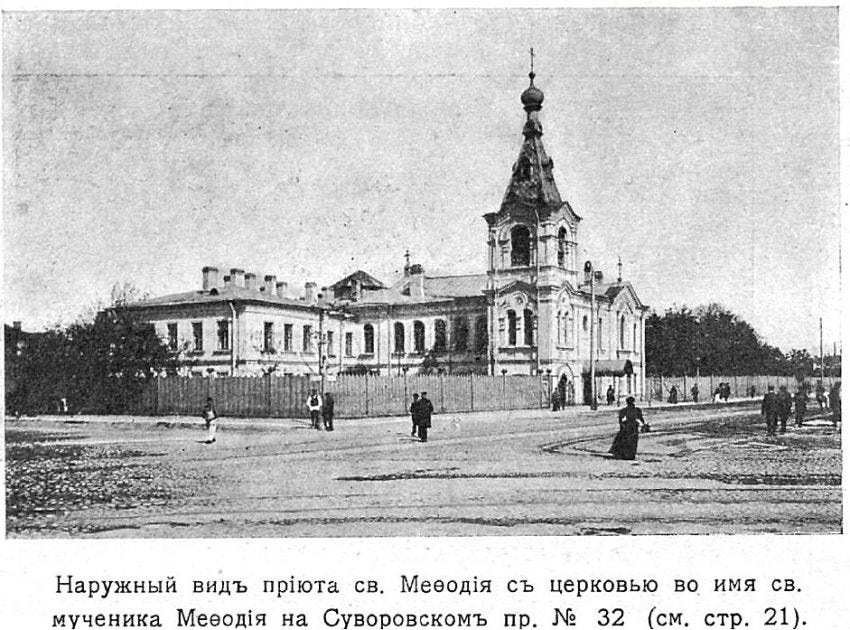
Today, thirty-five girls live at the shelter, and up to fifty boys and girls attend as day pupils. Children are accepted without regard for social standing—the Grand Duchess herself has the right to accept them; others are received by the superintendent, Meshcherskaya, who guided us through the shelter (a widow; her son and daughter live with her and attend the gymnasium).
The children rise at half past six, pray and take tea after half an hour; the day pupils receive sbiten’ and stay the whole day, receiving lunch. The cost of feeding the resident children amounts to thirteen kopecks daily, though due to donations from charitable souls, the actual outlay from the shelter’s treasury per girl is no more than eight kopecks. Day pupils are allotted three kopecks daily. All who come are desperately poor. It is required that they appear clean and decently dressed; if a child arrives dirty, he is provided with soap and water to wash on-site.
The shelter is beginning to flourish. Meshcherskaya joyfully recounted that the girls earned 350 rubles last year through sewing and embroidering garments (I ordered a dozen handkerchiefs marked with the letter "N" and requested they purchase them as well). The earned funds are saved for the girls, to be given to them upon leaving the shelter. The annual expenses of the shelter amount to nearly 5,000 rubles, including the superintendent’s salary (400 rubles) and teachers’ wages (15 rubles monthly).
Among the teachers is a rosy-cheeked, serious young girl of about seventeen—once herself a resident of the shelter—who now teaches and acts as choir leader.
We were first led to the church, ascending a staircase lined with greenery in pots. The church was spotless and bright; the public is permitted to pray there, so the priest and deacon are sustained by donations without requiring payment from the shelter. As we entered, the choir sang It is Truly Meet most harmoniously—the voices were clear and beautiful, especially the soprano. A concert and Many Years were also sung. In the altar, over the prothesis, a stone plaque bore Methodius’s request for prayers on his behalf.
above: The Children’s Choir of St. Elizabeth of Minsk performing ‘It Is Truly Meet’ in St. Petersburg
Opposite the Church, on the second floor, were the children’s dormitories—very clean, with an icon above nearly every bed, the personal property of each girl. In a corner stood a tiny room for the young teacher, who was very proud of her modest quarters. I visited the choir loft; though they faltered slightly while beginning Many Years, the choir leader reset the tone and all proceeded well. I gave the singers two rubles.

Next, we inspected the classrooms. Upon entering the shelter earlier, we had heard singing and laughter; now all were seated in good order. Day pupils and residents, boys and girls together, filled four classes. We first examined the youngest; in the two lower classes they were reciting Sacred History; in the third, arithmetic—fractions; and in the fourth, older girls practiced needlework: one sewing by hand, another hemming handkerchiefs, another sewing a silk gown.
The superintendent proudly noted that they now receive commissions for wedding gowns. We also saw the kitchen, additional teachers' quarters (other teachers are day instructors), and, finally, the superintendent’s rooms, where tea was served. She had two rooms: a sitting room/study and a bedroom shared with her son.
Two girls serve as orderlies, helping with cleaning and kitchen work, their dresses of a different color and with short sleeves for practicality. When in good health, the Grand Duchess often visited, acting maternally toward the children. Recently, she sent a two-year-old girl to the shelter, whom we saw there.
At Christmas, over three hundred rubles were donated for gifts, and every child received new clothing, shoes, and candies. The children even brought their little guests; the shelter was filled to bursting, and everyone was full of joy.
The children accompanied us out of the shelter in a merry throng.

From there, we proceeded to the Petersburg Side to visit the Mariinsky Shelter of the Red Cross, which accepts the children of officers slain in the recent war. It is under the patronage of Grand Duke Sergey Alexandrovich; its principal directress is Sofia Ilyinichna Ermakova. We found her present at the shelter.
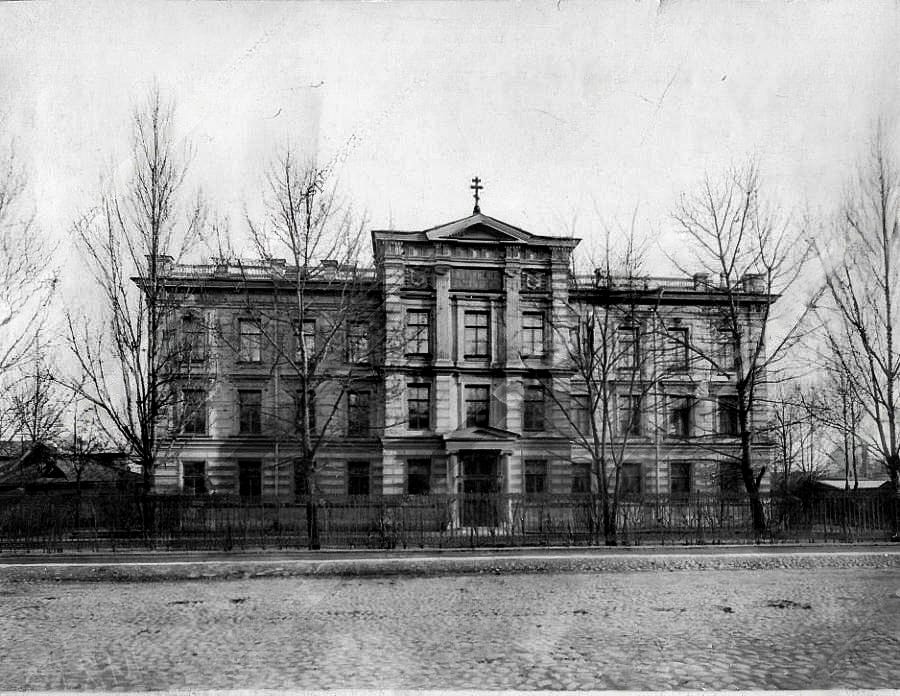
Never shall I forget the emotions I experienced upon seeing all these little ones—boys and girls—the children of our fallen heroes. Surely the last thought of every one of their fathers had been of the orphans left behind—and here they were sheltered and nurtured. And how well they are cared for! Everywhere there was such cleanliness and grace; the food was of excellent quality. We witnessed the children dining together with their caretakers. They eagerly displayed their exercise books, sang God Save the Tsar! and various children's songs such as Oh, Father, I Cannot and The Little Golden-Crested Rooster. Two of them sang a song about liberty brought from home.
Above: The song ‘The Little Golden-Crested Rooster’ is taken from this segment of the fairy-tale Note the alliteration in the original Russian.
Touching were Ermakova’s accounts of the children’s transformation—particularly two little ones, the Ogloblin children from Smolensk, the offspring of a captain, brought here by their mother: one had been like a little savage—yet now he is like the others.
Two of the boys are already preparing to enter the military academy. The rest are still very small; yet how harmoniously they sing! Even three-year-olds, their voices thin as mosquitoes, sing very accurately—they are taught under the accompaniment of a piano. We were also shown their exercises in room gymnastics. A Cossack girl, Varvara (from Rostov-on-Don), an eight-year-old with dark eyes, was a model pupil.
— God grant prosperity to this shelter! It is exceedingly comforting to see that the children of those who perished for the Fatherland are not abandoned to the mercy of fate.
From there, we had to hasten home, lest I be late for dinner at the Grand Duchess’s residence. However, Father Joseph persuaded me to stop for five minutes at the "Shelter of the Charitable Society of the Parish of Saint Vladimir."

There, the children sang for us—about sixteen of them; the shelter has only just been established, with a focus on crafts. The children presented me with a box of their handiwork and a book they had bound themselves, inscribed with their names. I gave one ruble in donation.
Upon returning home, I hurriedly changed attire and set off for the Grand Duchess’s residence. It seems I arrived at precisely a quarter past six. There were already gathered Baron Osten-Sacken, Sabler, the Grand Duchess’s younger son, her daughter, a certain lady, and another gentleman in gold epaulettes. They were already partaking of hors d'oeuvres.
The Grand Duchess welcomed me most graciously, personally handing me a plate and offering me caviar.
The entire dinner was lenten, yet naturally exquisite, consisting of about seven courses. I could scarcely manage to sample each dish, being constantly engaged in answering questions.

I recounted tales of Hideyoshi and harakiri, and answered the Princess’s inquiries about whether the Japanese were gentle, among other things.
After dinner, Baron Osten-Sacken read aloud some German verses handed to him by the Grand Duchess. Everyone praised them; I simply blinked my eyes.
The Grand Duchess inquired whether many donations had been received for the construction of the church—I replied that, alas, they had been few. Perhaps she intends to make a contribution herself, for as we parted, she remarked that we should see each other again before my departure for Japan.
We sat after dinner in the Red Drawing Room, upholstered in silk. Upon the wall hung a large painting of Archangel Michael, illuminated by two lamps.
The Princess appeared very simple and sweet; the Prince—a young officer—observed everything with a serious air. About thirty-five minutes after dinner, the Grand Duchess, Princess, and Prince rose, bowed, and withdrew to their quarters.
During dinner, I had been seated to the Grand Duchess’s right hand, between her and the Princess. Throughout the conversation, we spoke exclusively in Russian.
Translator’s Uncertainties and Notes:
"камлотка" – translated as "camlet outer garment" (a coarse woolen garment), with a footnote consistent with previous translations.
"Моховая" and "Инженерный замок" – Mikhailovsky Castle (also known historically as the Engineer Castle) and Mokhovaya Street identified appropriately based on 19th-century St. Petersburg geography.
"приют" terminology – translated "приют" consistently as "shelter," fitting both religious and secular charitable institutions.
"вельможи в золотых эполетах" – kept slightly vague ("gentleman in gold epaulettes") as no further title or name is provided.
"Hotel de France на Большой Морской" – kept the original French spelling, as was fashionable and accurate at the time.
"Саблер" – kept as "Sabler" (no additional clarification found in the passage); presumed to be a courtier or aide.
"поездки в Японию" – where Rosen seems reluctant to return to Japan, captured the nuance ("it seems he is not particularly eager").
Phrasing decisions – several sentences about songs and activities ("Oh, Father, I Cannot," "The Little Golden-Crested Rooster") were rendered in a slightly literary style to match 19th-century English diary translations.
Reflections:
I hired the dismissed manservant Andrey to serve me for the time being and, in the evening, sent him to Vasilyevsky Island to retrieve the camlet cassock and hat; Ivan Ivanovich also sent his drab overcoat, strictly instructing me to avoid going out lightly clad at this time.
That sounds like St. Petersburg in January! St. Petersburg is quite cold in January, and feels even colder due to the humidity in the air. I visited in January 2024 and it chilled me to the bone. We stayed inside most of the time. Winter in St. Petersburg is when you stay inside and visit museums like the Hermitage.
Shchurupov poured forth assurances that he had not truly been angry, that it was merely his way of speaking…
How many times have I heard things like this before? If you’re angry, be angry, if you were not justified in your anger, back off and apologize, but be honest!




